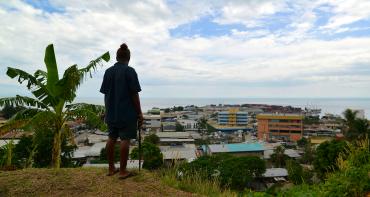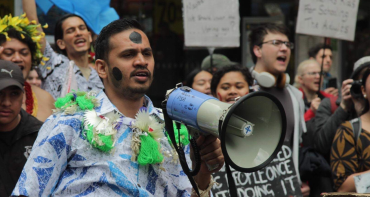Of the Commonwealth’s 2.4 billion citizens, 60% are under the age of 35. The boot camp, developed by the University of Cambridge, stimulates youth-led initiatives and is a part of a multi-year research engagement between the Commonwealth Secretariat and the university’s Resilience and Sustainable Development Programme (RSDP).

“We need big ideas, now more than ever, to make a real difference,” said Commonwealth Secretary-General Rt Hon Patricia Scotland QC, during the ‘Small States Youth Climate Policy Boot Camp’ held at the end of May 2021.
Of the Commonwealth’s 2.4 billion citizens, 60% are under the age of 35. The policy boot camp, developed by the University of Cambridge, stimulates youth-led initiatives and is a part of a multi-year research engagement between the Commonwealth Secretariat and the university’s Resilience and Sustainable Development Programme (RSDP).
During the policy boot camp, Secretary-General Scotland emphasized the need to engage with young people on climate policy:
“In the past year alone, amidst a pandemic which has ravaged lives and livelihoods globally, we have seen the devastating and far-reaching impacts of climate change in our small states. Our young people will ultimately lead the way in determining the direction for the future, and what a pleasure it is for us, to be able to provide the encouragement, guidance and support needed on this journey.”
Small states face disproportionate and multiple threats including climate change, economic shocks, tourism industry impacts, and disruptions in public welfare services and health care.
One of the high-level attendees of the policy boot camp, H.E. Aminath Shauna, Minister of Environment, Climate Change and Technology for the Maldives, said: “In recent years in the Maldives, 90% of our islands have suffered annual flooding, almost all of them suffer from shoreline erosion. As sea temperatures continue to rise, our livelihoods die, the world's inability to get a grip on emissions and the lack of funding for adaptation means that whenever a storm hits us, we suffer… Young people have a critical role to play in ensuring that climate change is addressed in the most inclusive manner and to ensure maximum resiliency in our communities”.
The RSPD, led by Dr Nazia Mintz Habib, is a global action-research initiative focused on achieving sustainable development, good governance and responsible innovation. In the wake of COVID-19, the Policy Systems methodologies such as this policy boot camp and policy simulation Labs, aim to help small states decision-makers to improve resilience-thinking capacity as they build towards a better future.
A virtual event, the policy boot camp brought together over 100 youth from 52 Countries along with 20 experts representing public, private, multilateral and civil society. Participants were asked to address a complex question - ‘How can we transform the capacity of governments, in Small Island Developing States (SIDS) of the Commonwealth, to attract sustainable finance for youth (age 15-35) initiatives and to contribute to resilient economies?’
Outputs from the four hour long policy boot camp range from, investing in the SIDS youth education systems developed with the SIDS experts and for the SIDS citizen, to matching retired and expert SIDS diaspora with the local youth to improve social capital along with economic multipliers effects. Ideas generated by the participants and in partnership with the experts in the room were stress-tested and evaluated by the participating experts following a peer-review process.
In the closing session, invited experts reflected on the experience and the solutions presented during the policy boot camp.
“Ideas were innovative and brilliant, perhaps it could be termed as thinking out of the box,” said Yakubu Aliyu, Director of Fiscal Policy, Debt Management and Regional Integration Department at the West African Institute for Financial and Economic Management (WAIFEM), Central Bank of Nigeria. “The Financial sector is not working for the broad population, especially for the youth. When it comes to SIDS youth, they are at a greater disadvantage. As many of the ideas were at the systemic level, we need to fix this so that we can integrate the youth into the financial sector and the overall development process,” he continued.
The inputs from the Small States Youth Climate Policy Boot Camp will be part of a research exercise to help build resilient economic infrastructure to support Small Island Developing States. Going forward, the Commonwealth Secretariat is looking forward to continued collaboration with the University of Cambridge, to help stimulate young minds to drive positive policy change and truly build back better in the post-covid world.



